Faisal Naeem
Intelligent Reflective Surface Deployment in 6G: A Comprehensive Survey
Apr 03, 2022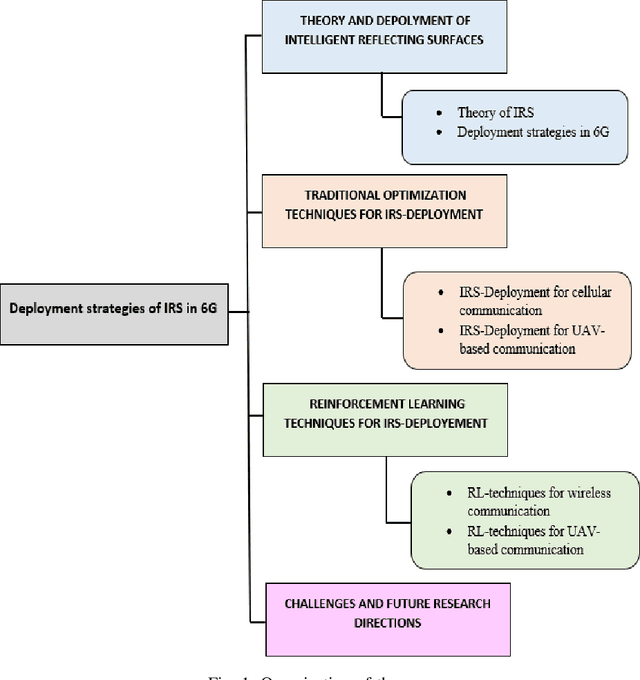

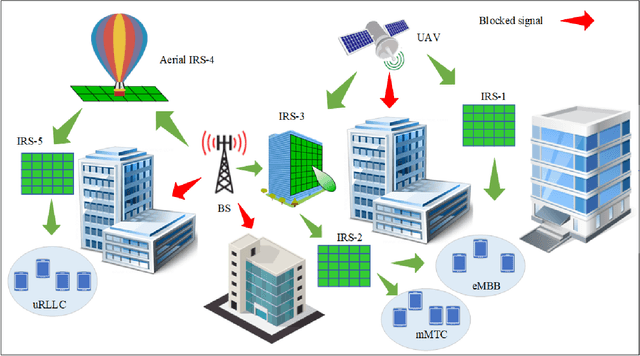

Abstract:Intelligent reflecting surfaces (IRSs) are considered a promising technology that can smartly reconfigure the wireless environment to enhance the performance of future wireless networks. However, the deployment of IRSs still faces challenges due to highly dynamic and mobile unmanned aerial vehicle (UAV) enabled wireless environments to achieve higher capacity. This paper sheds light on the different deployment strategies for IRSs in future terrestrial and non-terrestrial networks. Specifically, in this paper, we introduce key theoretical concepts underlying the IRS paradigm and discuss the design aspects related to the deployment of IRSs in 6G networks. We also explore optimization-based IRS deployment techniques to improve system performance in terrestrial and aerial IRSs. Furthermore, we survey model-free reinforcement learning (RL) techniques from the deployment aspect to address the challenges of achieving higher capacity in complex and mobile IRS-assisted UAV wireless systems. Finally, we highlight challenges and future research directions from the deployment aspect of IRSs for improving system performance for the future 6G network.
Federated Learning for Privacy Preservation in Smart Healthcare Systems: A Comprehensive Survey
Mar 18, 2022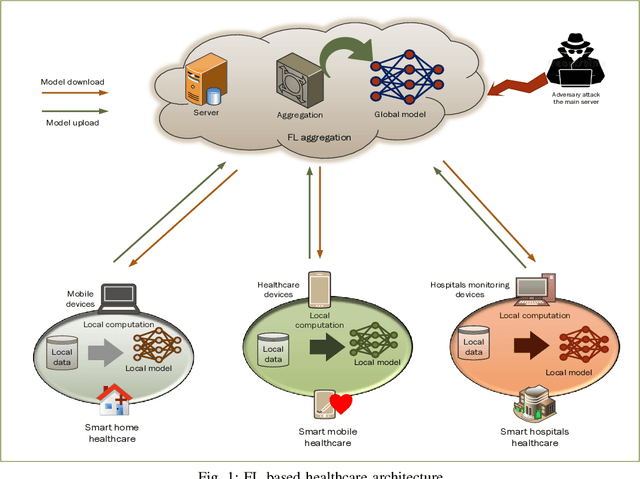
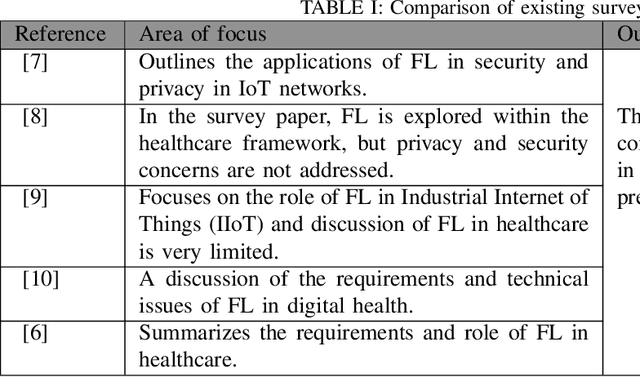
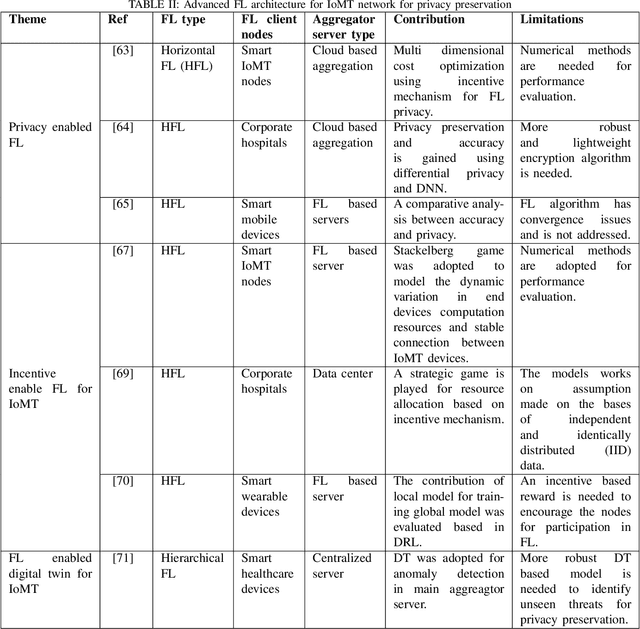
Abstract:Recent advances in electronic devices and communication infrastructure have revolutionized the traditional healthcare system into a smart healthcare system by using IoMT devices. However, due to the centralized training approach of artificial intelligence (AI), the use of mobile and wearable IoMT devices raises privacy concerns with respect to the information that has been communicated between hospitals and end users. The information conveyed by the IoMT devices is highly confidential and can be exposed to adversaries. In this regard, federated learning (FL), a distributive AI paradigm has opened up new opportunities for privacy-preservation in IoMT without accessing the confidential data of the participants. Further, FL provides privacy to end users as only gradients are shared during training. For these specific properties of FL, in this paper we present privacy related issues in IoMT. Afterwards, we present the role of FL in IoMT networks for privacy preservation and introduce some advanced FL architectures incorporating deep reinforcement learning (DRL), digital twin, and generative adversarial networks (GANs) for detecting privacy threats. Subsequently, we present some practical opportunities of FL in smart healthcare systems. At the end, we conclude this survey by providing open research challenges for FL that can be used in future smart healthcare systems
 Add to Chrome
Add to Chrome Add to Firefox
Add to Firefox Add to Edge
Add to Edge